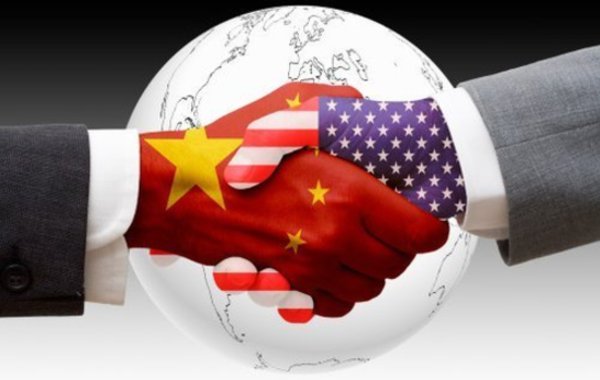Media Report

- The Wall Street Journal reports: "Mr. Trump's administration in recent weeks has dropped talk of blocking Chinese access to its South China Sea outposts and toned down its attacks on China's currency policy. It didn't join the United Kingdom, Germany and other allies criticizing China over the alleged torture of human-rights lawyers...The tone has been set in part by a charm offensive by China's U.S. ambassador, Cui Tiankai, toward Jared Kushner, Mr. Trump's son-in-law and a senior adviser, according to officials and government advisers in the two countries...White House officials said Mr. Trump would press Mr. Xi to agree to a "results-oriented" relationship with action on two significant issues: curbing Chinese exports to shrink the U.S. trade deficit, and policing Chinese companies that trade with North Korea to hobble Pyongyang's nuclear and missile programs...Beijing's strategy, Chinese government advisers said, is to offer to buy more U.S. goods and to invest more in the U.S., while pressing Mr. Trump to endorse a new framework for relations that acknowledges China's status and territorial interests."
- Foreign Policy comments: "Donald Trump is, by his own admission, not terribly analytical or deliberative. In a recent Time magazine interview, he declared, 'I'm a very instinctual person, but my instinct turns out to be right.' Unfortunately, when it comes to foreign policy, his instincts often contradict one another in potentially dangerous ways...This could be forgiven — if not for the fact that senior officials in the administration harbor two extreme sets of instincts, both of which are at odds with long-standing, bipartisan U.S. policy toward China. Members of Trump's team from a traditional big-business background — including senior advisor Jared Kushner and Secretary of State Rex Tillerson — hold instincts that are highly transactional and potentially accommodationist. According to this business-first approach, the United States should appease Beijing's desire for an expanded sphere of influence in Asia in exchange for help on discrete issues such as North Korea or the bilateral trade deficit. The second set of instincts is held by the economic nationalists — most notably chief strategist Steve Bannon and Peter Navarro, the head of the White House National Trade Council — who are thoroughly hostile to China's economic and military rise."
- Bloomberg reports: "As the head of Exxon Mobil, Rex Tillerson had a knack for doing deals in China, according to Fu Chengyu, the former chairman of Asia's biggest oil refiner. Now, Fu said Tillerson's negotiating playbook could help the new secretary of state defuse frictions between China and the U.S. over North Korea's nuclear program...Fu described Tillerson as a 'very good friend' who is 'very strong, tough in negotiations.' 'He always tries to find the right solution to meet all the needs of the different parties,' Fu, 65, said in an interview in Beijing on March 30. 'He was the one that never acted only in his own interests. He always coordinates the interests to all the parties, that is my experience working with him.' Still, while Tillerson brings years of experience navigating the subtleties of doing business in China, he also needs to manage a strident boss...Part of Tillerson's job will be to manage expectations for how fast, or indeed whether, he can achieve Trump's stated goals on North Korea."
Calendar
- 2017-04-04 Trump-Xi meeting watched for clues of future relationship
- 2017-04-03 What those papers Trump left on his desk reveal about his trade policy
- 2017-03-30 Climate change: China calls US 'selfish' after Trump seeks to bring back coal
- 2017-03-29 China Poised to Take Lead on Climate After Trump’s Move to Undo Policies
- 2017-03-28 China able to deploy warplanes on artificial islands any time: U.S. think tank
- 2017-03-27 China’s influence on global finance grows as US scales back input
- 2017-03-26 Beijing-backed Carrie Lam chosen as next Hong Kong leader
- 2017-03-24 South China Sea Reefs Need Defending, China Premier Li Says
- 2017-03-23 China says U.S. should respect China's air defense zone
- 2017-03-22 China’s extreme income inequality finally appears to be falling
News
- The Wall Street Journal Trump and China: Ahead of Summit, Both Sides Try to Reset Volatile Relationship
- Bloomberg 'Tough' Tillerson Will Help on North Korea, China Oilman Says
- NPR Citing Abortions In China, Trump Cuts Funds For U.N. Family Planning Agency Facebook Twitter Google+ Email
- Reuters China coking coal climbs more than 8 pct after Cyclone Debbie disrupts shipments
- The Financial Times Americans' views on China are softening
- The New York Times A Veteran and China Hand Advises Trump for Xi's Visit
- NPR Trump Administration Quietly Starts Review Of China's Trade Status
- The New York Times China Cleared in Takeover Bid for Syngenta
- USA Today U.S.-China trade scorecard: advantage China
- Bloomberg Korea's High-Tech Economy Threatened by Chinese Catch-up
- Reuters China denounces India hosting Dalai Lama in disputed region
- The Guardian Billionaire Warren Buffet becomes face of Cherry Coke in China
- The Financial Times China curbs 'Wild West' P2P loan sector
Commentary
- Foreign Policy Trump's Team Has No Idea What It's Doing On China
- The Center on Foreign Relations China's Confusing Trade and Current Account Numbers
- The Diplomat Ex-CIA Director's Take on THAAD in South Korea Will Vindicate China's Skepticism
- Barron's Copper: It's All About China and Trump
- Quartz China is about to change the way it uses a last-resort antibiotic for the better—but it's too late
- Forbes Ten Years From Now, China Will Still Own Sri Lanka's Hambantota Port
- The National Interest A Watchful Eye on China's 'Shadow Banking'?
